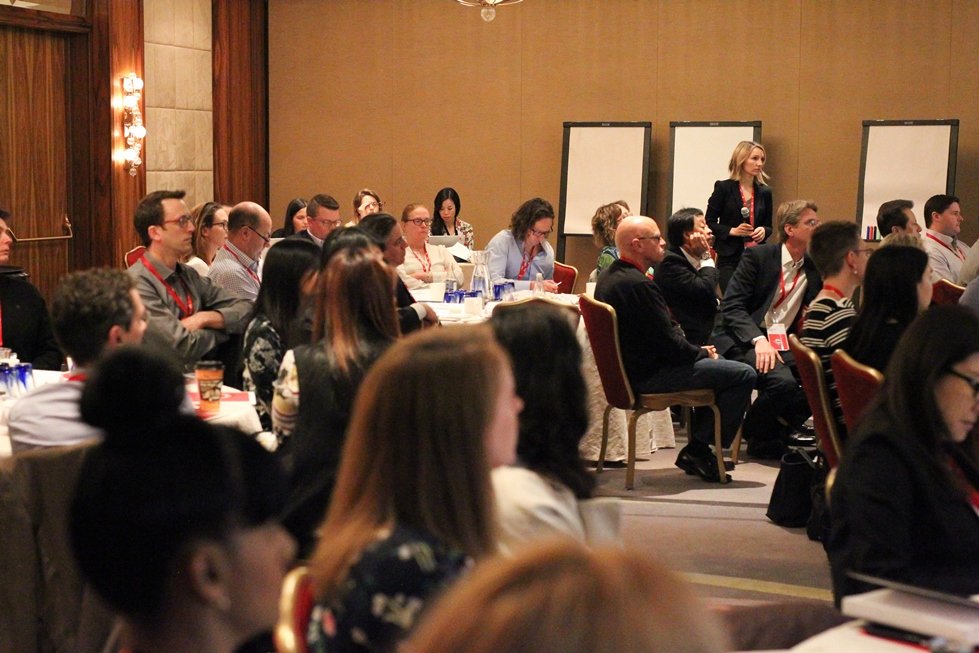Get analysis, insight & opinions from the world's top marketers.
Sign up to our newsletter.
Digitisation has ushered in a new dawn for media management. Layers of technology, a rapidly evolving ecosystem, transparency concerns, criminality, brand safety threats…all are major issues facing global media leaders today.
To succeed in this new world order we are seeing the need for an organisational change management process, focused simultaneously on people & capabilities, transparency & contracts, data & technology. As part of Global Marketer Week 2017, WFA held a ‘media transformation’ workshop with members and partners, to help future-proof client-side media departments. Here’s a taste of what we learned.

Finding the right global technological solution for your business requires testing. There is a long list of tech stack ‘flavours’. Ultimately, clients need to build something around their needs, whether that’s a single vendor for everything globally, a centralised global DMP or best-in-breed local/regional vendors, activated locally/regionally.
Have you taken the step to put in place ‘foundational’ marketing technologies, e.g. a direct relationship with an adserver, CRM, etc? Does your internal organisational structure lend itself to the increased centralisation (that in-house likely requires)? Do you spend a disproportionate share of your media investment on display and video?
Differences between technology vendors is reducing as their products are gradually commoditised. Understand how vendors ‘fit’ within your organisation’s interpretation of its requirements.
The main benefit with ‘header-bidding’ is to improve publisher yields. But it also holds significant attraction for marketers too as it opens up ‘premium’ inventory even before direct orders are placed. Clients should consider asking their DSP partners how they are set-up to access header auctions on the clients’ behalf?
Key elements of your strategy should provide clarity on:

One of the common themes was to recognise that clients need to be part of the solution. This often means reviewing your own processes. Regularly reviewing and updating your agency contracts. I many cases this is simply not happening.
Many ‘enlightened’ marketing sourcing colleagues in the room recognised the need to focus on value versus a relentless emphasis on efficiencies. Switching to PBC (performance-based compensation) was cited as one lever to achieve that. “Fairness” in remuneration was also shared as a critical baseline.
Where possible, transition from proxy metrics to KPIs based on business outcomes, however… transparency is a two-way street. You need to be transparent with your own data with your agency to enable this.
One of the fundamentals of media transparency is the ability to audit – whether that’s with a financial, media or forensic auditor. Your agency network probably recognises and accepts this. Don’t relent on gaining the same level of access guarantees at a holding company level also.
Many clients are still unaware that their agency has transitioned from being an agent to principle at law. Clearly defining the language and objectives in your contract is critical.
A compelling strategy not only articulates the need for change and the benefits of such, but also serves as a rallying tool across the business, sets your ‘true north’ to keep the process on track, determines the gaps that the right talent can plug and also wins the funding needed to hire the right people to deliver on the vision.
The road to media transformation can be potentially long and arduous, so having a C-Suite champion both anchors and accelerates the capability piece, effectively dismantles roadblocks, encourages cross-silo collaboration and ensures the longevity and commitment required to see transformation through.
The skillsets required for brands to successfully manage media investment require fresh thinking and a whole different toolbox; some of these roles might not even have existed 18 months ago. Brands must be prepared to hire for attitude, reward experience, continuously engage quick-thinking talent and think out-of-the-box when it comes to recruitment.
Transformation of any sort should present the opportunity to (re)define traditional structures towards a more meaningful, efficient way of working. But some silos – and habits – are harder to break than others. Establish how global, regional and local teams are to engage within the larger transformation framework and assign clear accountability of specific initiatives within teams to drive individual ownership. This should also be similarly mapped across external partners and agencies.
The more people you have in support of transformation, the more advocates and champions to accelerate and appreciate the program. Take the time with training to develop baseline skills and knowledge that you can continue to build upon and take the time to explain the benefits of the process to their business. Everyone likes to be part of success and if they can expand their knowledge and get smarter in the process, why not?
WFA will do a repeat of the Media Transformation workshop format, focused on best practice and solutions in data & technology, transparency & contracts, people & capabilities in Shanghai on 12 July. To find out more, click here.

For more information or questions, please contact Laura Baeyens at l.baeyens@wfanet.org